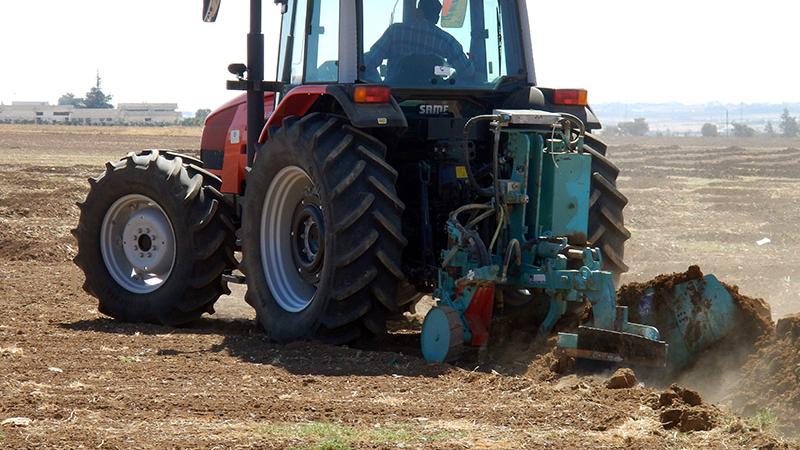Adapting to increasing water scarcity in the arid regions of Jordan

The dirt beneath our feet is more valuable than you might think. Soil is the basis for both food and fuel production and it is essential for the ecosystem services that nature provides us. Soil is finite. Once it is degraded, it cannot be recovered within our lifetime. The Food and Agriculture Organization of the United Nations (FAO) estimates that 33 per cent of land is degraded due to soil erosion, salinization or chemical pollution. Compounded by growing food security and climate change challenges, stress on our soils is only growing. In this International Year of Soils, it is mission critical that we manage and preserve our soils—both with new technologies and sound science.
For ICARDA, which works in the world’s dry areas, the challenge is two-fold. In these parched areas, the task it not only to protect the soil but to make the most use out of diminishing water resources. We argue here that the key to changing farmer fortunes in arid climates is to focus on two key areas: the exploration of water conservation technologies and sustainable soil management.
The Badia, a huge swath of Jordan is defined as receiving less than 250 mm of annual rainfall and typically characterized as a severely degraded rangeland environment. Badia characterizes about 75 percent of Jordan- one of the most water stressed countries in the world. Without intervention, this is bad news for Jordanian soils. The risk of degradation is higher and is compounded by demand for agricultural productivity. Here, technology has a role to play both in utilization of “green water” (or precipitation used directly for transpiration) and soil management.
With the generous support of the United States Agency for International Development (USAID), Arab Fund for Economic and Social Development (AFESD), the International Fund of Agricultural Development (IFAD) and the OPEC Fund for International Development (OFID), ICARDA established a benchmark research site in the Badia to implement an integrated approach to watershed management. Working with the National Center for Agricultural Research and Extension (NCARE) and local farmers, ICARDA’s Water and Livelihoods Initiative and Water Benchmark Program developed suitable techniques for harvesting water. GIS maps were developed for different suitable water harvesting, including contour ridges and furrows, runoff strips and bunds, created with a Vallerani plow. The plow is equipped with a hydraulic arm that creates pits along the natural contours of a slope, minimizing soil disturbance, while capturing sediment runoff and increasing soil fertility. The technology has since been adopted by the Jordanian Government as a method of ecological restoration of natural rangelands.
With the support of the Jordanian Ministry of Environment, NCARE, the Jordanian Ministry of Agriculture, and Jordan University this soil conservation technique has expanded dramatically in Jordan through the Badia Restoration Project funded by the United Nations Compensation Commission. The project planted a native species, the Atriplex hamilus using micro-catchment water harvesting techniques. More than 16,000 hectares of these shrubs were planted at the pilot and the extended sites with an additional 6,000 hectares planned for this year. The high amount of biomass grown by these native plants was evidence that surface runoff water was stored in the soil for beneficial use of restoring the rangelands. Planted in the pits created by the Vallerani plows, the vegetation helped increase vegetative land cover for livestock and improved soil conservation and productivity.
Through these soil management techniques, Jordanian soils have a fighting chance against soil degradation. The technologies help minimize soil disturbance, while the sustainable soil management methods give soils the organic matter they need to stay healthy and productive. If we can boost the productivity of soils in the world’s most challenged regions of the world, humanity has a chance to meet the world’s growing agricultural demand.
